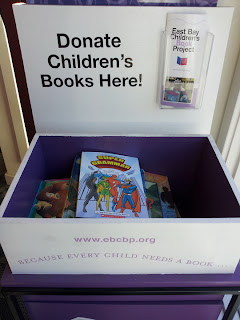With 2013 wrapping up, we can't help but take a look back at our first year as a published book. There are a few stand-out highlights, and we thought it would be fun to share them with you.
Our first highlight was a review by blogger Myles McDonnell on his blog: You know, for Kids. This review was especially cool because Mr. McDonnell wrote it based on the way his son, a second-grader (at the time), responded to Super Grammar. Before reading this review, we weren't quite sure whether Super Grammar's teaching format would be effective for a second-grader. But after reading it, we now have our answer! Have a look: http://youknowforkidsblog.blogspot.com/2012/09/new-books-super-grammar.html
Our second highlight is a two-parter. On her Mommy Maestra blog, Monica Olivera shares her valuable experiences and knowledge about homeschooling her two kids in a bilingual setting, and this is what made her review such a super stand-out for us—it was written from the homeschooler's perspective! Check out the fun and creative ways that this homeschooler put Super Grammar into action for her kids: http://www.mommymaestra.com/2013/03/celebrate-national-grammar-day-with.html.
Also, it turns out that, aside from blogging, Mrs. Olivera also writes articles and is a regular contributor to NBC Latino's website (among others), and this is where this turns into a two-part highlight for us. If you'd like a glimpse into why two artists decided to make a book about grammar, take a look at this interview: http://nbclatino.com/2013/01/30/illustrating-duo-creates-comic-book-to-help-students-master-grammar/.
Our last highlight is a big one for us! In their recently published article, Read like a Professor, Write like a Superhero, the School Library Journal calls out a specific list of books for being "models of good literature" and also for helping students meet with Common Core State Standards—and Super Grammar is at the top of the list! We are absolutely honored to be on this list, but what really makes it a special highlight for us is the fact that Super Grammar is now officially recognized for teaching English grammar in a way that meets with these specific Common Core State Standards:
CCSS L.3.1 Demonstrate command of the conventions of standard English grammar and usage when writing or speaking. 3.1a. Explain the function of nouns, pronouns, verbs, adjectives, and adverbs in general and their functions in particular sentences.We're very grateful for this acknowledgement, and we're more than pleased to end our first year as a published grammar book on such a good note. Here's the article: http://www.slj.com/2013/09/standards/curriculum-connections/read-like-a-professor-write-like-a-superhero/.
CCSS L.3.2 Demonstrate command of the conventions of standard English capitalization, punctuation, and spelling when writing. 3.2c.Use commas and quotation marks in dialogue. 3.2d.Form and use possessives.
We hope you all had a great year, too. And if you have a Super Grammar highlight for the year that you wouldn't mind sharing with us—please send it our way—or leave us a comment. We'd love to hear about it!
As always, thank you for your super support, and may your sentences always be strong!
All our best,
The Super Grammar Team
P.S.
I hope you don't mind, but I (Tony Preciado, Super Grammar's author) would like to add my own personal side note here about the Mommy Maestra blog. You see, I am a parent (I have a wonderful three-year-old daughter who is growing like a super weed), and as a first-generation Mexican-American, I am also bilingual: I speak both English and Spanish. Now, as you might have already guessed, having a strong and clear understanding of English grammar is super important to me. That said, I also very much love that I can speak, read, and write in Spanish (I think of it as one of my superpowers), and I very much want to pass this ability on to my daughter. Anyway, if you're a parent like me, or a homeschooler, or a teacher who is looking for fun, creative, and insightful ways to help your kids or students learn both English and Spanish, I would highly recommend stopping by Mommy Maestra. I have found it to be a wealth of information on the subject.





























